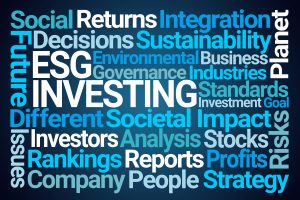The easing of the pandemic, aided by global vaccine rollout, means that African markets are shifting their focus to post-pandemic recovery. After 16 months of uncertainty, which has resulted in the economic stagnation of African economies, where trade and investment activities have ground to a halt.
With the gradual resumption of trade and investment in Africa, there has been a renewed focus on environmental, social, and governance (ESG) factors, which is now taking stage in the trade and investment domain. The increased insistence in the inclusion of ESG factors has been driven by investors in Africa, aided by continued government stimulus, and supported by Development Financial Institutions (DFIs) and multi-national development banks.
While the pandemic has not affected all African economies as severely as predicted the pandemic has still had a severe impact on some of the most vulnerable economies such as Angola and Zambia, which lack the macroeconomic opportunities of countries such as South Africa, Nigeria, and Egypt. The recovery from the pandemic is a key focus for Africa, and provides an opportunity for ESG factors to become a key requirement when deciding where, when and how to direct funds back into Africa, and to ensure Africa’s recovery is sustainable particularly from a trade and investment perspective.
Although ESG initiatives have been fully embraced in other parts of the world it seems that Africa has some catching up to do, and has fallen short when it comes to its implementation and ability to unlock the benefits that linked to ESG factors. Despite Africa’s diverse natural resources, renewable energy potential, human capital and significant development opportunities, connecting investors (many situated offshore) with investees on the continent is not always straightforward.
Unfortunately, this scenario has resulted in missed opportunities and limited the ability of ESG components, such as monitoring how companies manage energy or pollution issues, to penetrate investment flows into African projects that would otherwise enable the promotion of ESG investment goals within the continent. For now, Africa’s most visible contribution is through initiatives that are associated with ESG-related criteria that assist the UN accomplish its sustainable development goals, in other words, social impact projects.

How Can African Economies Unlock Their ESG Potential?
A key factor for unlocking this potential is for investors in Africa to become more aware and comfortable with the risks associated with investing in developing markets, as well as for them to find “sustainable assets” that can provide acceptable returns. Companies that recognize the potential of ESG must be able to clearly demonstrate how effectively they manage their operation, which includes how they interact with stakeholders, understanding their environmental impact, and how they detect and manage risk.
A strategy that can assist Africa in unlocking its ESG potential is through the collaboration of funding or co-funding initiatives with Development Finance Institutions (DFIs).
In this case, DFIs come in handy as DFIs have a long history of being sources of finance in Africa, often providing riskier, longer-term investment capital with an emphasis on sustainability, and enticing commercial lenders to engage using ESG-like metrics. As investment vehicles, DFIs can plug funding gaps on projects that banks might turn down due to concerns over the risk or length of an investment, as most banks tend to be more focused on shorter investment loans and less risky projects.
DFIs have traditionally worked two-fold. On one hand, banks have facilitated their investments on the continent – which is known as wholesale lending. DFIs lend money to an African or an international bank with on the ground connections, who then lend money to the agreed upon framework using embedded infrastructure. As these loans are funded by the DFI, they are traditionally sustainable in nature, adhere closely to the ESG requirements of the lender, and require reporting and validation.
The combination of DFI capital, which can be used to make riskier investments, with a national or international bank’s capital, reaches more businesses and opportunities for trade and investment activities while alleviating some of the bank’s reporting and validation obligations.
The potential benefits of this approach is that smaller businesses can also benefit from this arrangement. SMEs are critical to Africa’s development, especially from a trade and investment perspective and it is only by fostering the growth of entrepreneurs and SMEs that Africa will be able to eradicate poverty and progress to the next level. Hybrid lending arrangements that handle risk that banks are unwilling to take on, along with investments in ESG and sustainable development initiatives, can, and will pave the way for Africa’s future growth and development.
